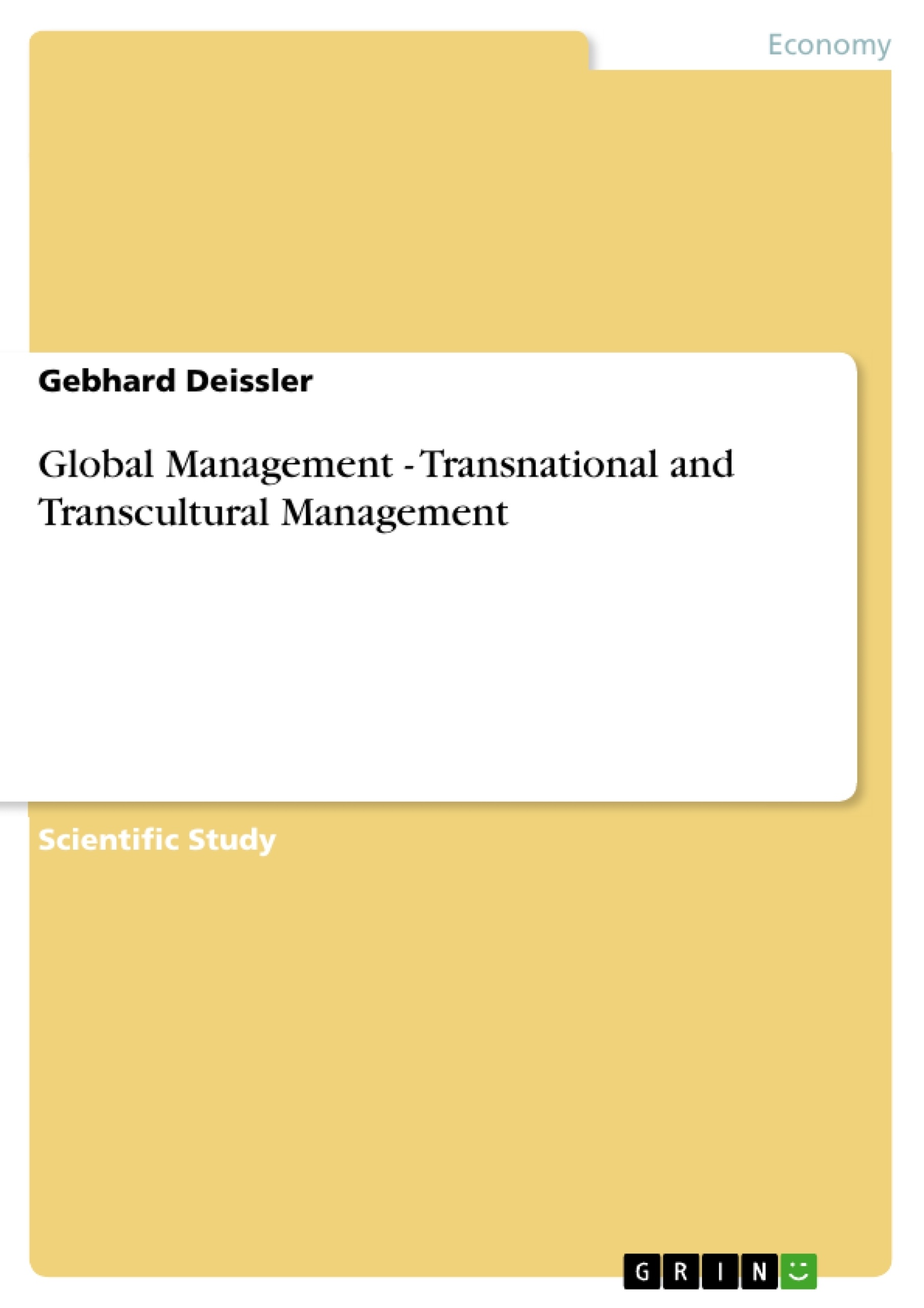Transnational and transcultural management imperatives form the complementary reality of the complexity of today's global business world. Their integration provides additional global managerial resources and capabilites.
Inhaltsverzeichnis (Table of Contents)
- Part 1: Transnational Management
- Notions of transnational management
- Phases, attitudes and responses to globalization and change management
- Transnational versus Transcultural. Passage in English and German
- Part 2: Transcultural Management
- Notions of transcultural management
- The state of the intercultural art and science: On human relativity in intercultural research
- Enhancing the intercultural art and science: Sources, models and the achievement of supreme cultural intelligence
- Synopsis of inter-/transcultural management instruments: Skills, formulas and techniques
- Inter-/transcultural reference terminology: A terminological resource for the transcultural manager with bilingual definitions and explanations
Zielsetzung und Themenschwerpunkte (Objectives and Key Themes)
This text aims to explore the concepts of transnational and transcultural management, examining various approaches to globalization and intercultural understanding. It seeks to provide a framework for navigating the complexities of managing across national and cultural boundaries.
- Different approaches to globalization and change management.
- The contrast between transnational and transcultural management perspectives.
- The development and application of intercultural skills and competencies.
- Models and sources for achieving high cultural intelligence.
- Key terminology and resources for effective transcultural management.
Zusammenfassung der Kapitel (Chapter Summaries)
Part 1: Transnational Management introduces the concept of transnational management, exploring different responses to globalization from strategic and attitudinal standpoints. It analyzes approaches ranging from global standardization to localized strategies, highlighting the importance of balancing global perspectives with regional demands.
Part 2: Transcultural Management delves into the state of intercultural research, emphasizing the relativity of human behavior across cultures. Subsequent chapters explore methods for improving intercultural competence, detailing various instruments, skills, and techniques. A significant portion is dedicated to a bilingual terminological resource designed to aid transcultural managers.
Schlüsselwörter (Keywords)
Transnational management, transcultural management, globalization, change management, intercultural competence, cultural intelligence, global standardization, regional demands, intercultural communication, bilingual terminology.
Frequently Asked Questions
What is the difference between transnational and transcultural management?
Transnational management focuses on strategic responses to globalization, like balancing global standardization with regional needs. Transcultural management focuses on the human element, specifically navigating cultural relativity and developing intercultural intelligence.
How can a manager achieve "supreme cultural intelligence"?
It is achieved through the study of intercultural research models, developing specific skills and techniques for cross-cultural interaction, and understanding the relativity of human behavior across different societies.
What are the typical responses to globalization in business?
Responses range from global standardization (one-size-fits-all) to localized strategies (adapting to specific regional markets) and change management attitudes that embrace transnational complexity.
Why is bilingual terminology important for global managers?
Accurate terminology is a vital resource for preventing misunderstandings in international business. The text provides bilingual definitions to ensure managers can communicate effectively across language barriers.
What is the "state of the intercultural art and science"?
This refers to the current findings in intercultural research which emphasize that human behavior is not absolute but relative to the cultural context in which an individual is raised and operates.
- Quote paper
- D.E.A./UNIV. PARIS I Gebhard Deissler (Author), 2011, Global Management - Transnational and Transcultural Management, Munich, GRIN Verlag, https://www.grin.com/document/182924



